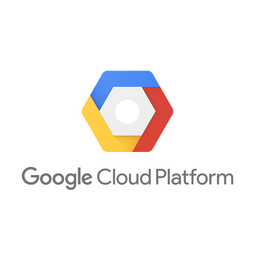Customer Company Size
Mid-size Company
Region
- America
Country
- United States
Product
- AlloyDB for PostgreSQL
- Google Cloud Spanner
- Google Cloud TPUs
- Google Cloud GPUs
- Google Cloud Datastream
Tech Stack
- PostgreSQL
- Golang
- Django
Implementation Scale
- Enterprise-wide Deployment
Impact Metrics
- Productivity Improvements
- Cost Savings
- Customer Satisfaction
Technology Category
- Platform as a Service (PaaS) - Data Management Platforms
- Analytics & Modeling - Predictive Analytics
- Infrastructure as a Service (IaaS) - Cloud Databases
Applicable Industries
- Software
- Telecommunications
Applicable Functions
- Product Research & Development
- Business Operation
Use Cases
- Edge Computing & Edge Intelligence
- Predictive Maintenance
- Remote Asset Management
Services
- Cloud Planning, Design & Implementation Services
- System Integration
About The Customer
Character.AI is a company focused on delivering lifelike interactions using artificial intelligence. Their platform allows users to engage in conversations with Characters inspired by historical figures, fictional personas, and more. The service offers dynamic Group Chats where multiple Characters interact with users, creating an interactive dialogue. Character.AI harnesses the power of neural language models to analyze extensive text data and generate intelligent responses. The company is highly technical, from training models on supercomputers to delivering services as a web-based chatbot. Character.AI aims to provide an exceptional user experience by efficiently processing large amounts of data, which is crucial for their time-to-market and ability to build differentiated algorithms.
The Challenge
Character.AI experienced exponential growth in user demand, which put significant stress on their existing database infrastructure. The initial database setup was limited by the maximum scaling capacity of each instance and the number of smaller instances that could be patched together to distribute the workload effectively. The company lacked the resources to transform or refactor the database to a more scalable engine within the given timeframe. They needed a solution that could offer immediate scale and performance benefits without requiring extensive code changes. The challenge was to find a scalable solution that could be deployed quickly to handle the increased demand and ensure the platform's functionality.
The Solution
Character.AI turned to Google Cloud's managed database solutions to address their scaling challenges. They initially used Google Cloud's tensor processor units (TPUs) and graphic processor units (GPUs) for prototyping and building their consumer application. As the demand for their service grew, they adopted AlloyDB for PostgreSQL to handle the increased database load. AlloyDB offered better performance and higher scalability with a fully PostgreSQL compatible interface, allowing Character.AI to scale their operations without extensive code changes. The migration process involved a replication strategy, running two replication sets from the source database to the destination AlloyDB database in change data capture (CDC) mode for 10 days. This approach allowed them to prepare for the cutover smoothly. Additionally, they refactored a part of their Django monolith into a standalone microservice backed by Spanner, improving scalability and performance. Spanner's industry-leading high availability and virtually unlimited scale enabled Character.AI to ingest terabytes of data per day without concern.
Operational Impact
Quantitative Benefit

Case Study missing?
Start adding your own!
Register with your work email and create a new case study profile for your business.
Related Case Studies.

Case Study
Vodafone Hosted On AWS
Vodafone found that traffic for the applications peak during the four-month period when the international cricket season is at its height in Australia. During the 2011/2012 cricket season, 700,000 consumers downloaded the Cricket Live Australia application. Vodafone needed to be able to meet customer demand, but didn’t want to invest in additional resources that would be underutilized during cricket’s off-season.

Case Study
SKT, Construction of Smart Office Environment
SK T-Tower is the headquarters of SK Telecom. Inside the building, different types of mobile devices, such as laptops, smartphones and tablets, are in use, and with the increase in WLAN traffic and the use of quality multimedia data, the volume of wireless data sees an explosive growth. Users want limitless Internet access in various places in addition to designated areas.











